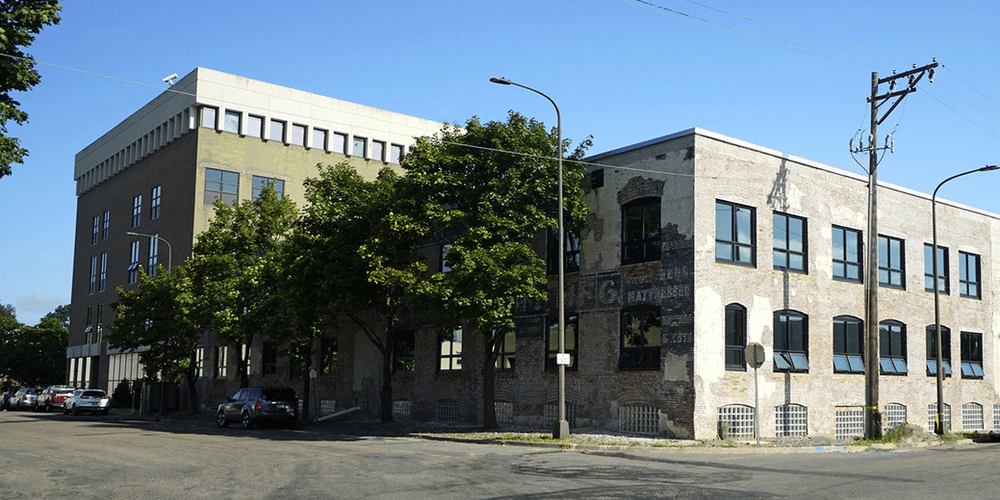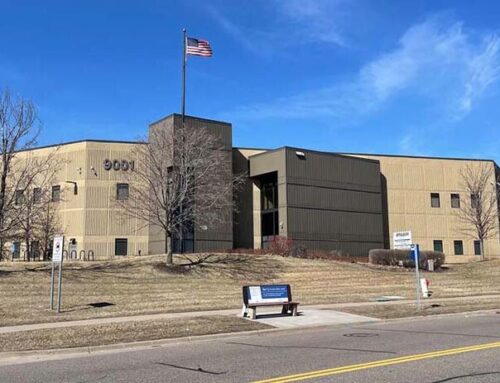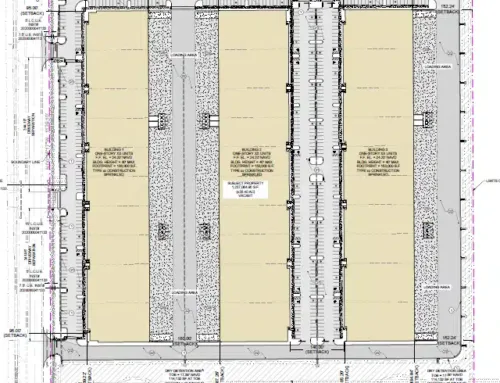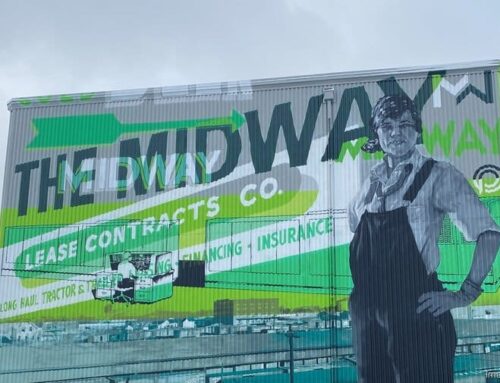Developer Rich Pakonen has invested in numerous downtown St. Paul skyscrapers including the Pioneer Endicott building, the Lowry and the Osborn370. Pakonen’s newest project might be one of his biggest and most challenging yet: the transformation of an old nut plant into an industrial creative space for small businesses.
Called the Wycliff for its location at 2327 Wycliff St. just east of Hwy. 280, the building has recently begun to fill with a mix of tenants. The complex rests on the outskirts of St. Paul’s Midway area and serves as an example of the type of development that has begun to blossom in the neighborhood and that advocates say they want to see more of.
Long passed over by major developers as a mostly industrial area in a forgotten part of the Twin Cities, St. Paul’s Midway has started to attract more commercial developers like Pakonen, especially close to University Avenue where the light rail has run since 2014 and the new Allianz Field opened last year.
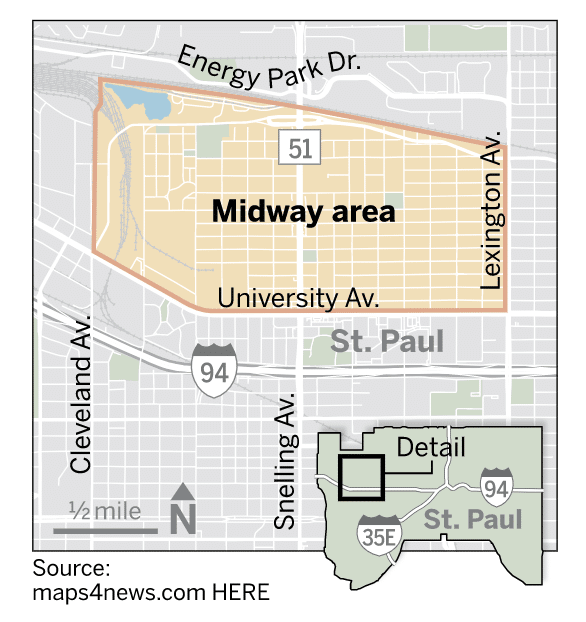
Real estate experts said the Midway is a market poised for a wide range of commercial development including not only industrial but housing and offices. “The normal practice of multistory, industrial buildings in an urban core is to tear it down,” Pakonen said during a recent tour of the Wycliff facility. “This isn’t a pretty building. It isn’t intended to be a pretty building. It’s functional.”
Pakonen and his PAK Properties company spent about about $7 million to renovate the 300,000-square-foot building into a multi-tenant industrial space for small businesses. It’s a building “where you can make sounds and dust because you can make things,” Pakonen said. Pakonen purchased the building in September 2018 for $1.5 million from California-based Orton Development. The complex was built in stages as 10 interconnected buildings between 1890 and 1975 for the Fisher Nut Co.
After Procter & Gamble bought Fisher Nut in 1989 and the plant was shuttered five years later, the building has been used by a mix of different companies and was most widely known as the Wycliff Industrial Center.
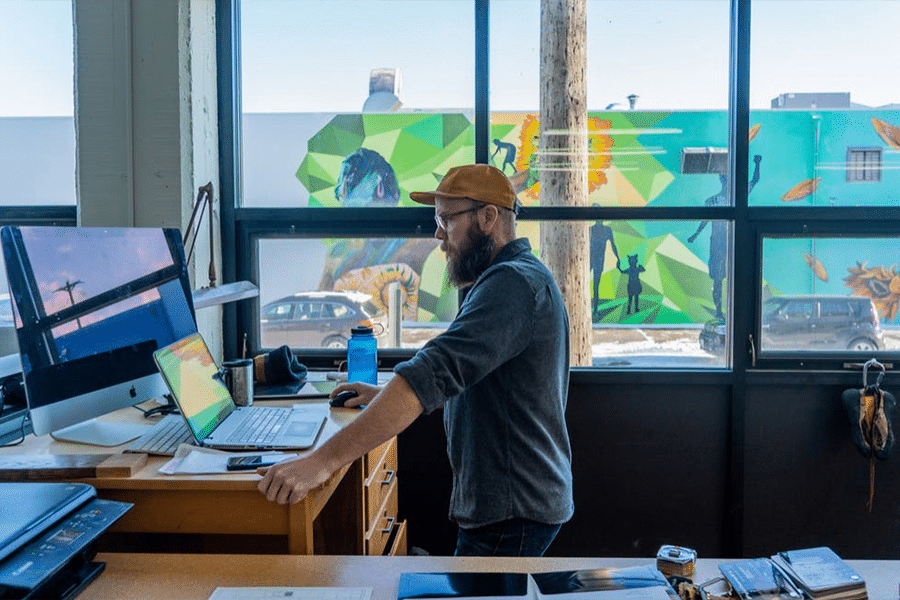
Construction began on the building last January. Operable windows were added to allow for more natural light. Roof work and upgrades to the electrical and HVAC systems were done. New passenger and freight elevators were installed, among other upgrades like showers and locker rooms for tenants.
Some of the complex’s other features are 22 large loading docks, separate entrances that businesses can use for their customers, high ceilings to fit machinery and wide corridors to move products. In the last six months, the real estate firm Avison Young has begun to market the building to tenants. About 30% of the building is currently occupied or leased.
The Wycliff’s new tenants include solid shampoo and conditioner maker HiBar, Deane’s Kombucha, and Holl Studio, a builder of custom wood cabinetry and furniture.
Other tenants that will soon move into the building include Sole Solutions, a custom orthotics company, and Kala Vandanam, an Indian dance studio.
“St. Paul is a fabulous place to do business. … This area is going through massive change,” Pakonen said.
Besides the Wycliff, other industrial flex space buildings have been redeveloped into successful properties in the Midway. They include the former American Can Factory now known as the Prior Works building, which is home to mini-golf attraction Can Can Wonderland and other businesses, and Vandalia Tower, which had been a mattress factory that was turned into creative offices and a brewery.
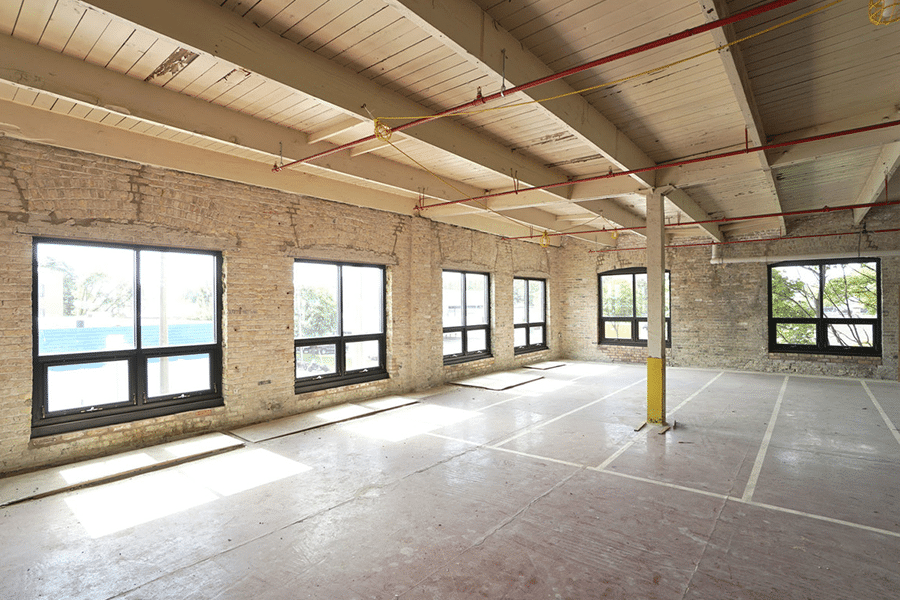
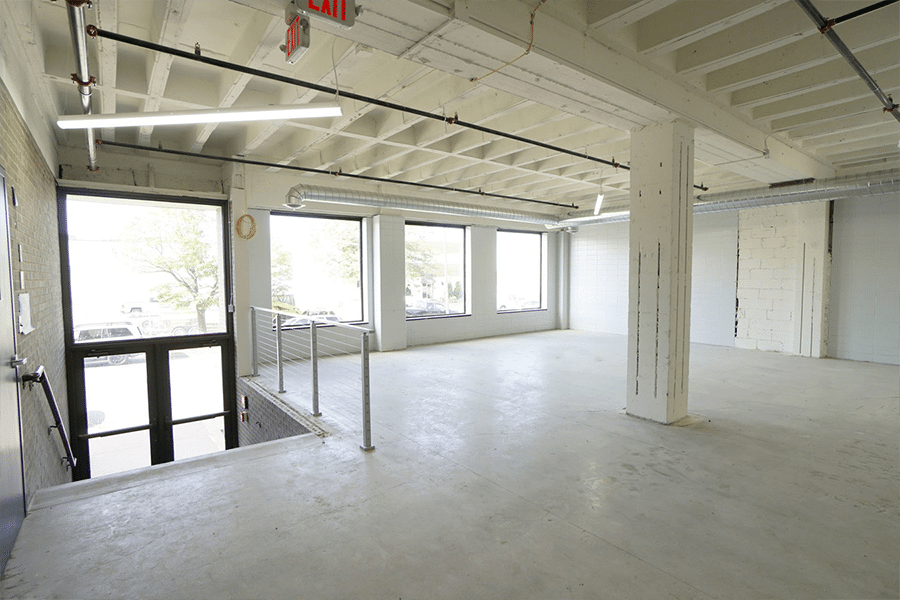
St. Paul-based Exeter Group, which recently acquired and renovated a brick-and-timber building near the Wycliff for offices, hopes to soon finish rehabbing the former Minnesota Chemical Co. facility into what it is calling the Mission Building, which is being converted into creative office and commercial space.
One of the metro’s largest industrial sales in the third quarter of 2019 was the nearly $100 million sale of a portfolio of 18 warehouse and office warehouse buildings just north of University Avenue and a half-mile from Allianz Field to a joint venture of Minneapolis-based Capital Partners and New York-based DRA Advisors.
A 137-unit apartment project at the site of the former Furniture Barn store near the intersection of Snelling and University avenues led by Scannell Properties is under construction. Another 160-unit apartment project developed by Wellington Management across from the Allianz Field is expected to break ground in February. There are also plans to create a “super block” of development surrounding Allianz Field.
“I think it’s a unique neighborhood that you are getting a little bit of everything and it can coexist,” said Steve Buss, managing director of capital markets at JLL’s Minneapolis office.
As new housing projects in the Midway attract residents, more offices and job demand will follow, Buss said. New breweries and taprooms in the area have also helped to increase foot traffic, he said. Office rents in the Midway for renovated space are on par with northeast Minneapolis market levels and are approaching the low end of asking rates for the North Loop, Buss said. Unlike the North Loop, which has little functional industrial spaces, the Midway area still has facilities that can be used for manufacturing along with some brick-and-timber buildings that can be converted into housing and other uses, Buss said.
“I think the Midway is becoming an option and coming on to people’s awareness lists,” Buss said. Frank Sherwood, vice president of advisory and transaction services for CBRE, said the Midway area will continue to see more private investment in the near future. “We’re bullish on St. Paul in general and the Midway area,” he said. “We don’t see anything to slow these things down.”
Sherwood pointed to one wild card: crime. St. Paul’s homicide rate last year more than doubled that of 2018, and has become a problem for incoming development that needs to be addressed. “Unfortunately, it gets a lot of airplay on the 5 o’clock news and it’s tough to overcome,” he said.
Catherine Reid Day, board chairwoman of the Creative Enterprise Zone, a coalition of organizations, businesses and individuals to foster creative enterprises in the Midway area, said she is happy that building owners like Pakonen are investing in the neighborhood’s maker spaces. “The roots of the neighborhood have always included some kind of making,” she said. “The idea is that creative entrepreneurs are an essential part of that neighborhood and will continue to be so.”
The Creative Enterprise Zone has started a public mural program, in which the Wycliff participates. The nonprofit has also recently hired a real estate director who is working to assist creatives and businesses find work spaces while also exploring the group’s potential to purchase a property itself.
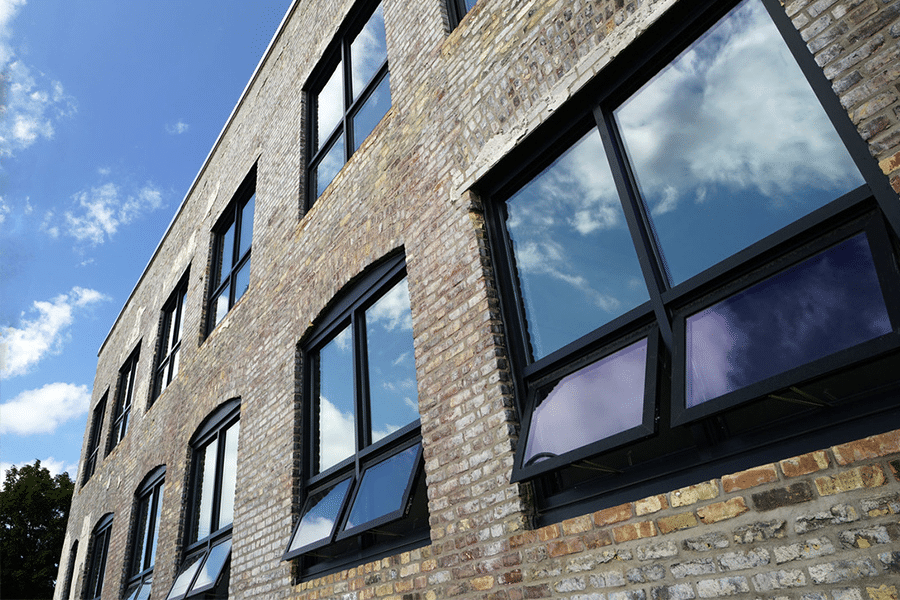
“This is where the next great idea is going to grow is in the places like what we are working on,” Reid Day said.
By Nicole Norfleet Star Tribune
JANUARY 4, 2020 — 9:18PM

